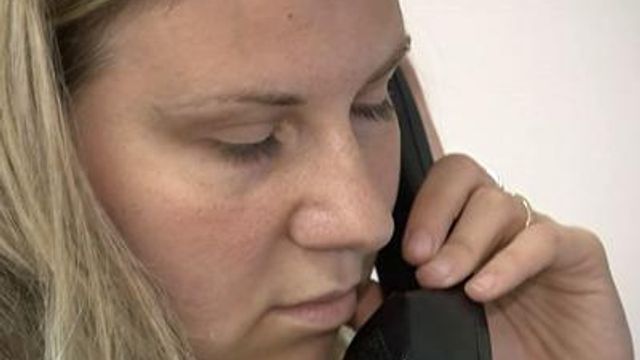Economic downturn raising suicide risks
WakeMed reports, 41 people committed suicide in the first quarter of this year. That is a 64 percent increase from 2008.
Posted — Updated"There's countless more people than the people we see in the emergency room that are hurting in the community that no one knows about,” psychiatrist Jeffrey Childers said.
"As a husband who's seen himself as a provider year after year, it's difficult to talk about this with your wife. You feel like you're letting them down and it's embarrassing. They're ashamed and we hear a lot of that," said Courtney Atwood, with HopeLine.
Psychiatrists recommend people try to find an outlet for depression. That is what Cliff Bumgardner, 16, said he did three years ago when was going through a dark period.
"I didn't really have any friends, had no direction, had no hobbies, didn't have anything to put time into and nothing to look forward to," he said.
Bumgardner said his outlet became doing magic tricks, and that helped lift his spirits.
"You can not be afraid to ask, 'Are you thinking about suicide?' The word people tend to shy away from and use euphemisms. That's not the solution. The solution is to ask because most people don't want to go through with it. They're feeling desperate and if someone would just reach out to them that would make all the difference in the world," Atwood said.
Dr. Margery Sved, medical director of Durham Center Medical, a group connecting people with mental health help, points to these potential suicidal signs:
- Threatening to hurt/kill oneself; talking about wanting to hurt or kill oneself
- Looking for ways to kill oneself by seeking access to firearms, pills or other means
- Talking or writing about death, dying or suicide
- Feeling hopeless
- Feeling rage or uncontrolled anger or seeking revenge
- Acting reckless or engaging in risky activities
- Feeling trapped, like there is no way out
- Increasing alcohol or drug use
- Withdrawing from friends, family and society
- Feeling anxious, agitated or unable to sleep or sleeping all the time
- Experiencing dramatic mood changes
- Seeing no reason for living or having a sense of purpose in life
There is also a national suicide prevention helpline, 800-273-TALK.
• Credits
Copyright 2024 by Capitol Broadcasting Company. All rights reserved. This material may not be published, broadcast, rewritten or redistributed.





